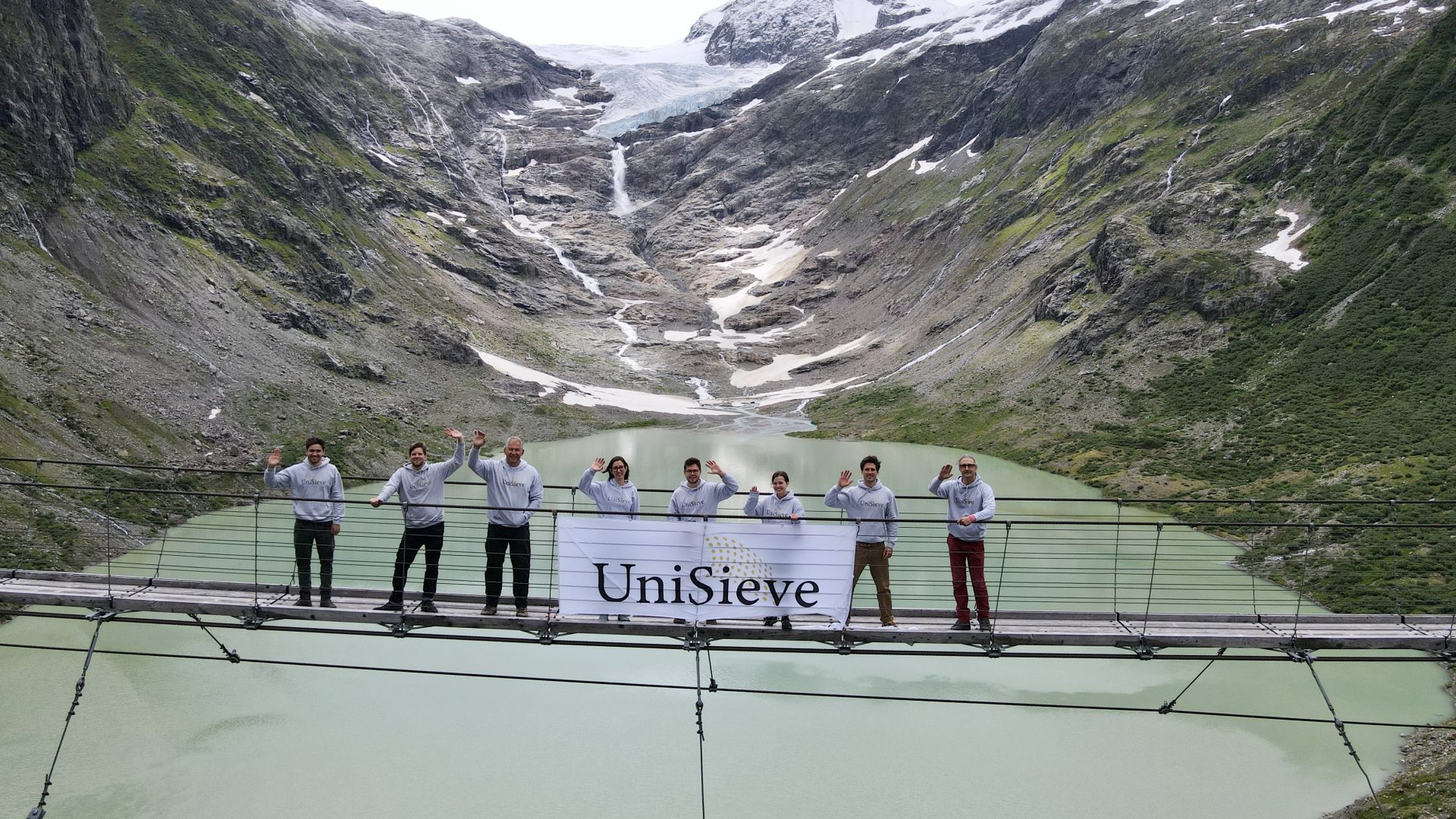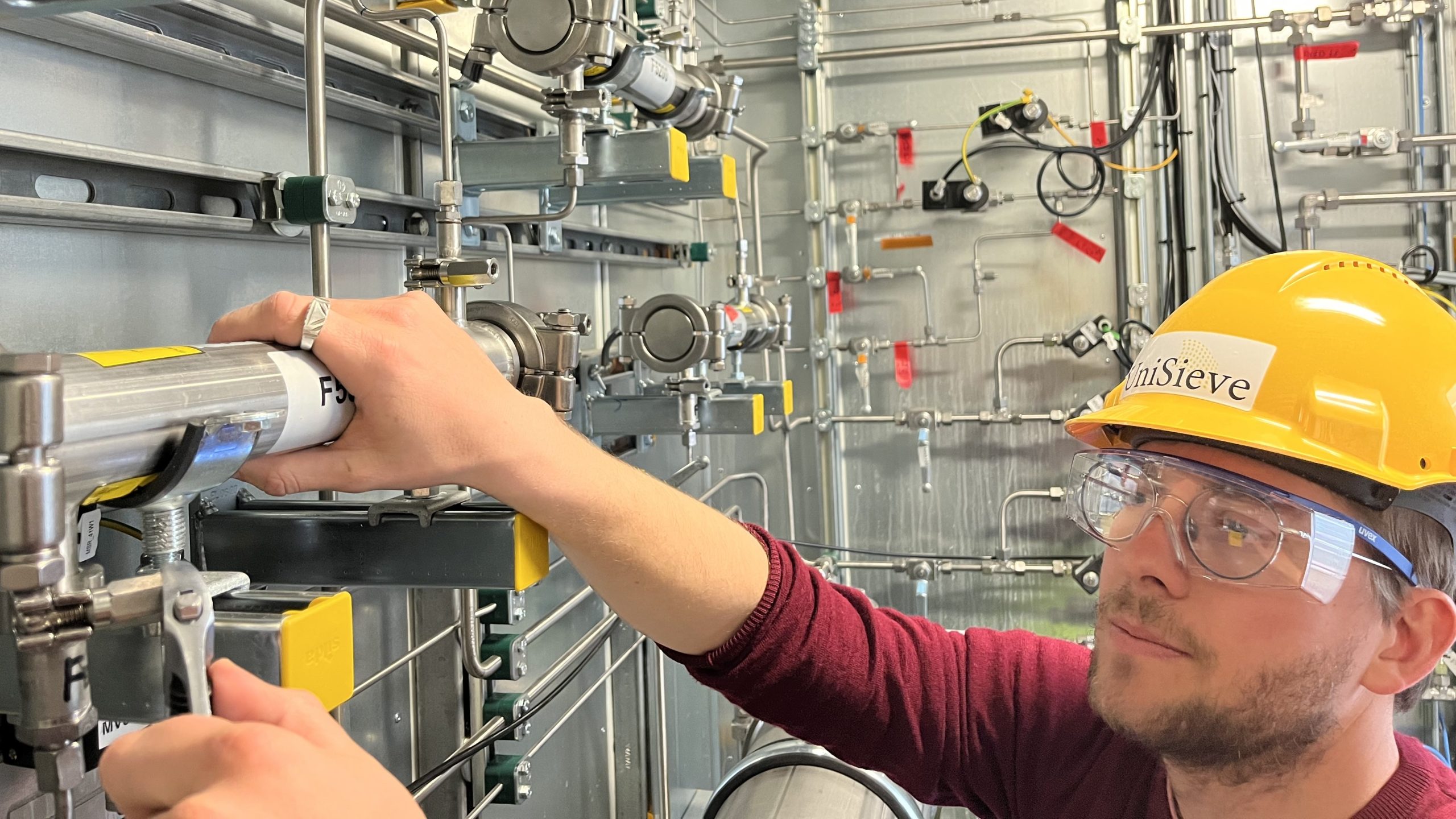Heavy industries such as chemical or energy companies are among the heaviest carbon emitting sources yet they are broadly committed to the Net-Zero goals of the Paris Agreement.
Helping them achieve their targets Cleantech company UniSieve has identified a unique and innovative opportunity for them to progress and has announced a $5.5m seed funding round to pilot and expand production capacities.
This oversubscribed funding round saw participation from a venture capital consortium including the Amadeus APEX Technology Fund, Wingman Ventures, Ciech Ventures and Zürcher Kantonalbank.
The biggest challenge facing heavy industries is to create energy efficiencies in their legacy, highly energy-intensive assets worth billions of dollars. For example, in chemical plants a major energy drain is the chain of separation and purification steps because it still depends on highly energy-intensive thermal processes. UniSieve is seeking to solve this significant energy drain to help these industries get closer to Net-Zero goals.
UniSieve stands for “universal sieving.” Without heat or cold, UniSieve’s membrane-based separation solutions can separate chemicals, energy carriers, or CO2 from flue gas based on size exclusion. The solution bypasses the needs for heating or cooling through sieving membranes that can reduce the energy needed for separating and purifying molecules by up to 90%.
Samuel Hess, co-founder and CEO of UniSieve commented:
“Our solution is addressing a major emissions cause and its potential for energy and emission reduction is significant for our planet. In essence we say stop boiling and start sieving to end energy intensive distillation. The concept of sieving works as simple as a coffee filter holding back the coffee powder from an espresso. However, it gets a little tricky when separating chemicals that vary in size by a fraction of an angstrom only (1 angstrom equals one-tenth of a nanometer). To do so, the sieve must be extremely narrow and precise. The UniSieve membrane is structure made of highly ordered network of porous crystals that generate in a repeating pattern, much like ancient Roman mosaics”
“The concept of combining molecular sieves with a support layer to create the perfect membrane has been out there for decades but never made it into broad, commercially applicable membranes. When creating the membrane platform technology, the UniSieve Team focussed on economic scalability, the most frequent reason that has prevented other approaches from succeeding.”
UniSieve was established in 2018 by university class fellows Samuel Hess and Elia Schneider. Whilst studying at ETH Zürich, they discovered the means to manufacture and integrate porous crystals (zeolitic materials) into polymeric membranes. Pre-seed funding from Wingman Ventures and several prestigious grants from the European Union, the Swiss government, and private foundations enabled them to prove the hypothesis of their scalable and affordable high-performing membranes.
Samuel Hess added:
“We have run pilot testing with industry leaders which have demonstrated that the separation solution works. Today, we have several contracts signed and under negotiation to pilot our membranes in a variety of applications.”
Lukas Weder, founding partner at Wingman Ventures commented:
“Energy intensive production processes have been a key talking point across the board. But we’re seeing action now. Two important things are happening that are driving this action. Firstly, heavy industry is willing to invest in solutions to tackle the problem and secondly, better quality solutions are available. The UniSieve technology solution has been tried, tested and is ready to be deployed and so, perfectly positioned to help companies quickly to build very powerful energy efficient production processes”
Wolfgang Neubert, General Partner at the Amadeus APEX Technology Fund, commented:
“UniSieve is our first industrial technology investment in Switzerland. We were impressed by the team’s to bring this academic thesis to life and not only this to make it commercially viable and scalable. It has the potential to be hugely impactful for the world. We look forward to supporting the team on their journey.”




